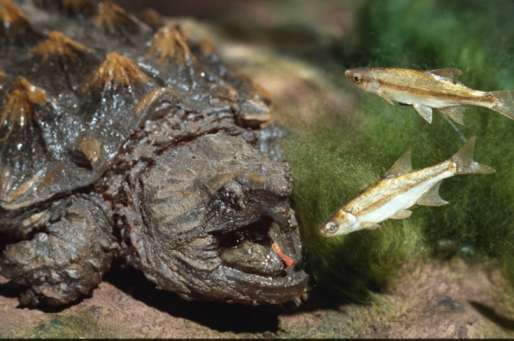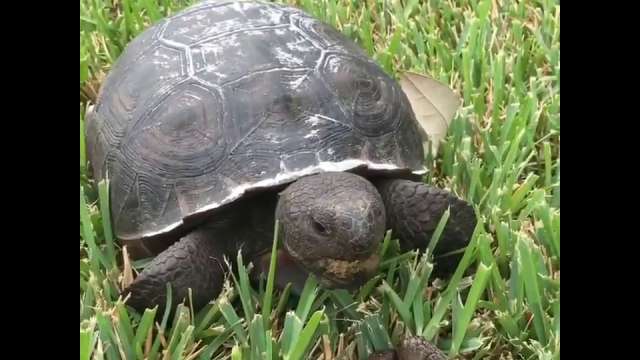Turtles are fast becoming a popular pet these days! And for good reason—they’re cute, small and don’t take up much room (unless you have a larger turtle) and can be very pretty. Plus, turtles are such interesting animals.
Connect with a verified veterinarian in minutes. Licensed vets are available 24/7 to answer your questions. No need to worry about your furry family member.
While these are cute pets, did you know that turtles sometimes eat rocks? Can it be dangerous for them?
Rocks are Dangerous for Turtles
Most people who adopt a small turtle usually put it in an aquarium, or similar habitat, and then fill the base of the aquarium with fish tank gravel. However, fish tank gravel isn’t really meant to be used in a turtle’s home.
The reason is that fish tank gravel is small, and turtles have been known to eat the gravel. However, the gravel isn’t the only problem. If the turtle’s home also includes small stones or pebbles, they can also be dangerous. This is the case if the small stones or rocks are small enough for the turtle to swallow.
Why do Turtles Swallow Rocks?
No one’s exactly sure why turtles swallow rocks. In the wild, turtles may sometimes eat rocks to obtain minerals they need to stay health. Another reason wild turtles sometimes eat stones is to use them to break up roughage in their digestive system. In addition, they may swallow rocks to help with flotation and balance in the water. Wild turtles don’t eat stones very often—it’s only once in a while and doesn’t seem to cause them any health issues.
However, pet turtles may eat rocks simply out of boredom or even hunger. Eating rocks can cause a turtle serious health problems.
For instance, rocks (or even sand) can become lodged in the turtle’s digestive tract. This can create an intestinal blockage, which keeps him from eating and could also cause constipation. If you notice these symptoms, it’s time to call the vet immediately. This is a medical emergency that could be life-threatening.

Review symptoms, medications & behavior to keep your pets healthy with a Vet Online in just minutes.
Ask a Vet Live NowTreatment of Intestinal Blockage in Turtles
First, the vet will need to determine where the blockage is located. They will have to examine your turtle to x-ray your turtle to find the blockage. Once the blockage has been found, the vet may decide to try laxatives on your turtle to help him pass the rock (if that’s possible).
Another option is to give medications through a tube or syringe through a cannula in your turtle’s digestive track. This can help pump out the turtle’s stomach, if the rock is there.
Otherwise, the vet may decide that surgery is necessary.
If your turtle has eaten one rock, chances are he will be OK. The stone will likely pass. However, if you notice that he’s stopped eating, is constipated, and lethargic, then it’s definitely time to call the vet. Prompt medical care could save your turtle’s life.
Connect with a verified veterinarian in minutes. Licensed vets are available 24/7 to answer your questions. No need to worry about your furry family member.

Tom
Tom has always loved to write since he was little - he wanted to be either a writer or a veterinary doctor, but he ended up being a professional writer while most of his works are based on animals. He was born in San Francisco but later moved to Texas to continue his job as a writer. He graduated from the University of San Francisco where he studied biotechnology. He is happily married and a soon to be father!
Review symptoms, medications & behavior to keep your pets healthy with a Vet Online in just minutes.
Ask a Vet Live Now


